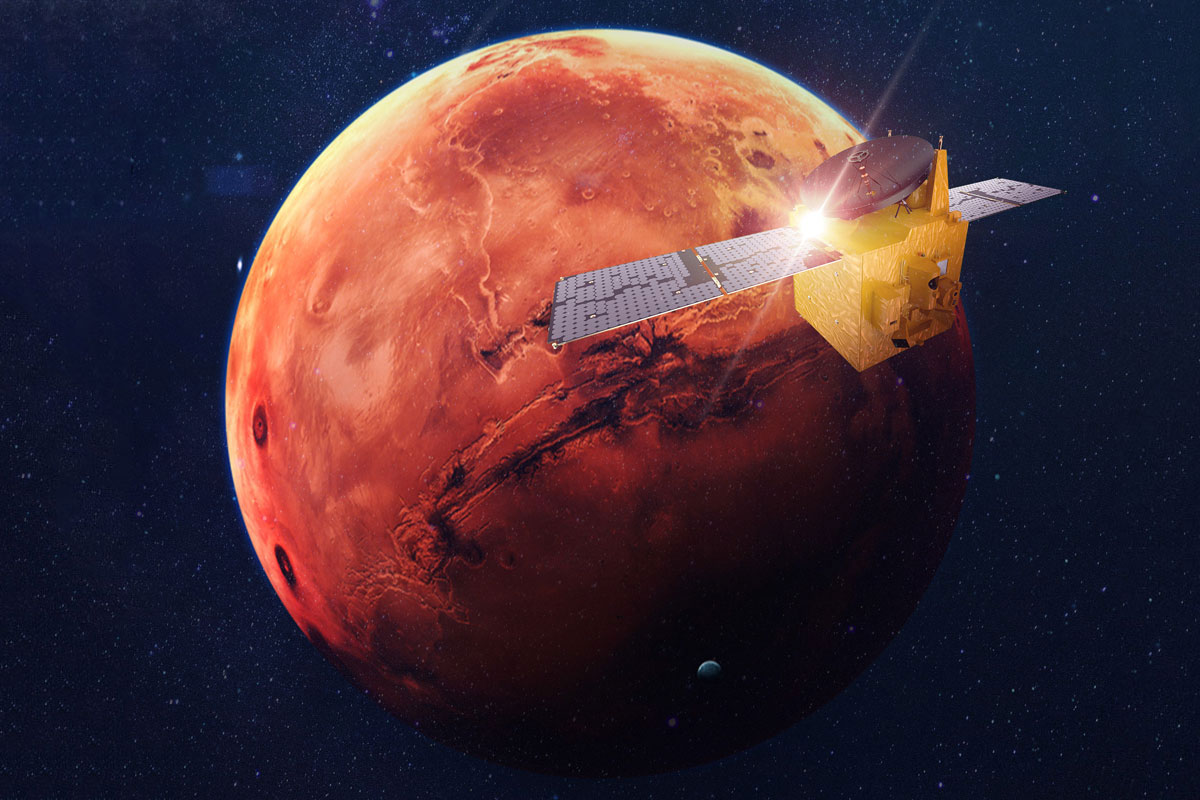When billionaire entrepreneur Richard Branson successfully launched into sub-orbital space from New Mexico last month, the UAE’s own celestial ambitions were brought into focus.
The Emirates is looking towards the day – drawing ever closer – when Branson’s Virgin Galactic tourism firm operationalises it spaceport in Al Ain. The Abu Dhabi government – which has a 7.08 percent stake in the aerospace company – will also be keeping an invested watch on Branson’s space progress.
In the last few years, the UAE’s space programme has become an integral part of the country’s economic diversification plans. As well as investing heavily in its native satellite industry, the UAE has cemented its reputation as a spacefaring nation with the Hope Probe – which successfully entered its Mars orbit this year.
 Dr Maharaj Vijay Reddy, research associate at Coventry University’s Research Centre for Business in Society.
Dr Maharaj Vijay Reddy, research associate at Coventry University’s Research Centre for Business in Society.
The Mohammed bin Rashid Space Centre (MBRSC) is the formidable government force behind the UAE’s astronaut programmes, Mars missions, and plans to become only the fourth nation to land on the moon.
Reach for the stars
The country also plans to land an unmanned spacecraft on the moon by 2024. A lunar rover will be developed as part of the Moon project, with the same vehicle playing a role in the UAE’s long-term goal to build a self-sustaining human settlement on Mars by 2117.
According to Dr Maharaj Vijay Reddy, research associate at Coventry University’s Research Centre for Business in Society, the UAE is on a stellar path to space success.
“The UAE has a favourable open space policy which has attracted Virgin Galactic and will attract others,” the prominent UK-based space tourism expert told Arabian Business, adding that the MBRSC invests more than $10 billion annually – around ten times that of its UK equivalent.
 Hazzaa Al Mansoori became the first Emirati astronaut in 2019.
Hazzaa Al Mansoori became the first Emirati astronaut in 2019.
The UAE’s Hope Probe successfully entered its Mars orbit this year.
“The UAE has put strong capital investment into space research,” he said. “The country has brought in many top scientists from the US and India… now it needs to focus on building up its indigenous knowledge base and STEM worker pool.”
Point-to-point travel
Reddy said ‘point-to-point’ travel is a potential growth area as the UAE looks to grow its space tourism industry.
“The idea is that any destination on the planet could be reached with an hour, such as Tokyo from New York. This type of travel could appeal to people like tennis players and Hollywood stars. It has serious business potential,” said Reddy, adding that by 2030 it will be the norm to travel to ‘space orbit’ hotels.
The space expert said that the UAE’s mission to reach the moon and Mars would be “feasible” following a number of advancements. “The global space tourism industry will begin with sub-orbital feats, then orbital and elliptical,” he added.
By 2070, around five million people are expected to travel to space annually, around 60 space hotels will exist, and space itself will be home to 70,000 inhabitants.
“In the long-term, space travel will help alleviate resource scarcity and global overpopulation,” said Reddy. “The UAE has made tremendous efforts and is on the right path to Mars and the moon.”






